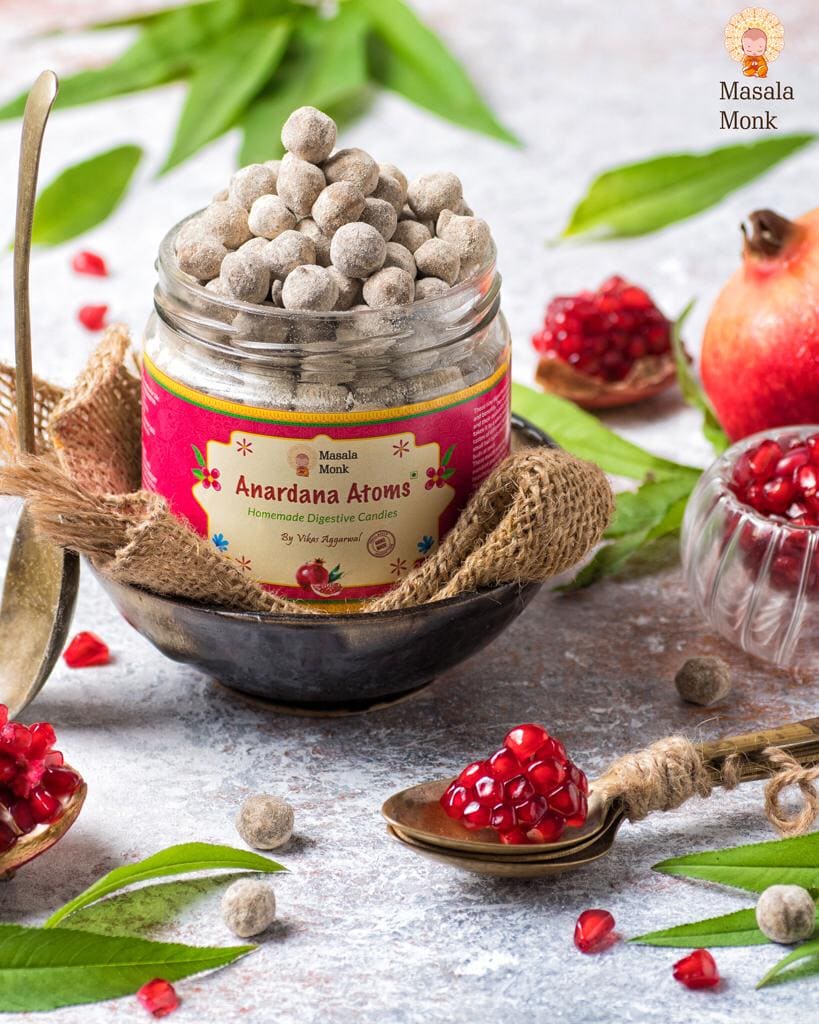
Pomegranate, often referred to as the “jewel of winter,” is not just a delightful fruit but also a powerhouse of health benefits. Especially when it comes to digestion, pomegranate has some surprising advantages. Let’s explore this fruit’s relationship with our digestive system.
Understanding Pomegranate: A Brief Overview
Pomegranates are rich in dietary fiber, antioxidants, and vitamins. These components play a crucial role in promoting a healthy gut and overall well-being.
Pomegranate and Its Digestive Benefits:
- Aiding Digestion: The dietary fiber in pomegranates supports smooth digestion and regular bowel movements, helping alleviate constipation symptoms.
- Heartburn Relief: While pomegranate juice is acidic, it doesn’t necessarily induce heartburn for everyone. However, those with acid reflux or GERD should consume it with caution.
- GERD (Gastroesophageal Reflux Disease): The anti-inflammatory properties of pomegranate might help soothe the stomach lining, though it’s essential to introduce it slowly into your diet if you have GERD.
- Anardana for Digestion: Anardana, dried pomegranate seeds used in Indian cuisine, is believed to aid digestion and combat acidity.
Consumption Tips and Precautions:
- On an Empty Stomach: Drinking pomegranate juice on an empty stomach can kickstart metabolism. However, its acidic nature might cause discomfort for some.
- Pomegranate Skin Benefits: Traditionally, pomegranate skin has been used for potential stomach benefits, though it’s not typically consumed.
- Stomach Pain Post Consumption: If pomegranate causes stomach discomfort, it might be due to its acidity or personal intolerance. Always listen to your body.
MasalaMonk’s Pomegranate Delights:
At MasalaMonk, we understand the myriad benefits of pomegranate. Our Anardana Atoms harness the power of pomegranate seeds, offering a tangy treat that can aid digestion. Additionally, our range of natural products, like Kacha Aam Bombs, Guava Atoms, and Amla Sharbat, are crafted to provide both taste and health benefits.
- Anardana Atoms: A tangy treat harnessing the power of pomegranate seeds.
- Explore other natural offerings like Kacha Aam Bombs, Guava Atoms, and Amla Sharbat for a blend of taste and health.
FAQ Section:
- Why is pomegranate considered beneficial for digestion? Pomegranate is rich in dietary fiber, which aids in smooth digestion and promotes regular bowel movements. Its anti-inflammatory properties can also soothe the stomach lining, making it a potential ally against digestive discomfort.
- Can I drink pomegranate juice on an empty stomach? Drinking pomegranate juice on an empty stomach can jumpstart your metabolism. However, due to its acidic nature, some individuals might experience discomfort. It’s always best to monitor how your body reacts and adjust your consumption accordingly.
- Is pomegranate juice good for people with GERD or acid reflux? While pomegranate has anti-inflammatory properties that might help soothe the stomach lining, its acidic nature can be a concern for those with GERD or acid reflux. It’s essential to introduce it slowly into your diet and observe any reactions.
- What are Anardana and its benefits? Anardana refers to dried pomegranate seeds, often used in Indian cuisine. It’s believed to aid in digestion and combat acidity, offering a tangy flavor alongside its health benefits.
- Can pomegranate cause heartburn? Pomegranate juice is acidic, and while it doesn’t necessarily induce heartburn for everyone, those prone to heartburn or with a sensitive stomach should consume it with caution.
- How does MasalaMonk incorporate the benefits of pomegranate in its products? MasalaMonk offers products like Anardana Atoms, which harness the power of pomegranate seeds. These products are crafted to provide both taste and health benefits, celebrating the wonders of pomegranate.
In Conclusion:
Pomegranate is more than just a fruit; it’s a health elixir, especially for the digestive system. However, moderation is key. Always consult with a healthcare professional if you’re introducing significant changes to your diet.
Blog Tags: pomegranate digestion, pomegranate heartburn relief, GERD and pomegranate, Anardana benefits, pomegranate juice benefits, digestive health, natural remedies for digestion, MasalaMonk products, pomegranate dietary fiber, pomegranate and stomach health.









